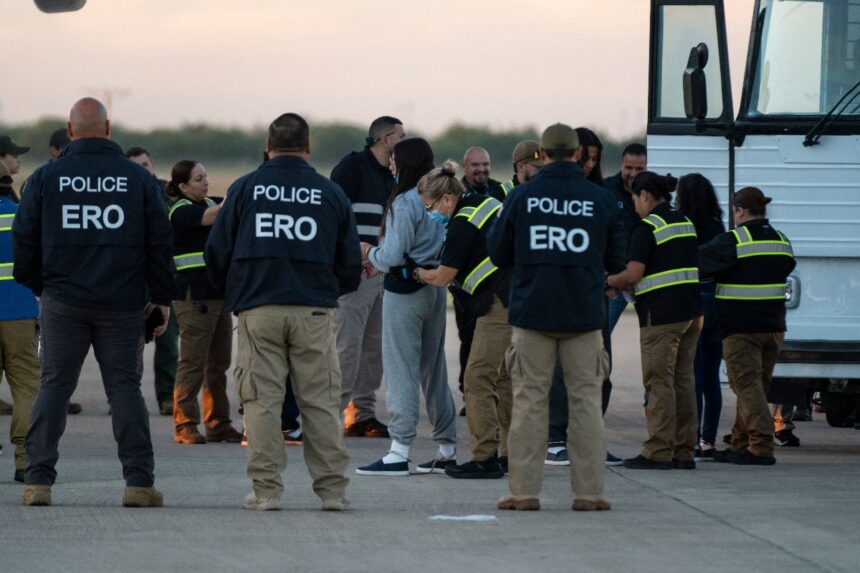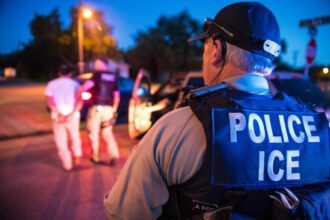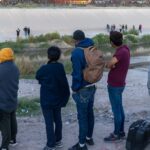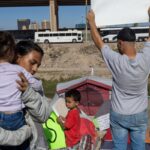The Government of Venezuela denounced that four children were separated from their mothers by U.S. authorities before they were deported to the South American country.
The accusation was made publicly by the Minister of Interior and Justice, Diosdado Cabello, during his television program “Con el Mazo Dando”, broadcast by the state-owned VTV network.
Venezuelan moms deported without their children
According to Diosdado Cabello, three of the women who were repatriated on a deportation flight from the United States reported that their children were taken from them before boarding the plane.
Two of the children were born to the same mother, bringing to four the number of children allegedly separated from their families on this flight.
The aircraft was carrying 203 deported Venezuelan migrants, 49 of them women.
“They had their children taken away from them leaving the United States,” the minister said.
“We are not talking about a voluntary separation or informed judicial decisions, but about something that, according to them, happened abruptly and forcibly,” Cabello stated.
The minister described the act as an act of “kidnapping”, a term that has been repeatedly used by the government to refer to Washington’s immigration policies.
Context of the complaints
Diosdado Cabello also assured that these new cases are in addition to the 18 Venezuelan children that, according to his government, remain “detained” in the United States after having been separated from their parents during immigration proceedings.
Caracas maintains that these minors were victims of detention and deportation policies that do not respect the principle of family unity.
That is something that has been harshly criticized by international human rights bodies in the past, especially during the implementation of the “zero tolerance” policy at the border during the previous term of Donald Trump, who is currently serving his second term as U.S. president.
Accusations against El Salvador
During the same program, Cabello launched direct accusations against the president of El Salvador, Nayib Bukele, whom he accused of “kidnapping” 252 Venezuelan citizens currently being held in a maximum security prison in that Central American country.
These migrants, according to the Venezuelan government, were deported from the United States in March of this year and transferred to El Salvador, where they are being held under conditions described by Caracas as “inhumane”.
“El Salvador has become a concentration camp for Venezuelans,” said Cabello.
In addition, he noted that these citizens do not have access to consular assistance and that their families are unaware of their current status.
Request for Vatican intervention
In an effort to escalate the issue of Venezuelan moms deported without their children to international instances, the government of Nicolás Maduro has delivered a letter to the apostolic nuncio in Caracas, Monsignor Alberto Ortega, addressed to Pope Leo XIV, requesting his mediation in what they consider a humanitarian crisis related to the family separation of Venezuelan migrants.
The Chavista Executive has made these allegations part of its narrative against the United States, accusing the government of Donald Trump of promoting “inhumane” practices against migrants and violating international agreements on children’s rights and family reunification.
This type of denunciation once again brings into focus the situation of the more than 500,000 Venezuelans currently living in the United States, many of them in an irregular migratory situation or awaiting asylum.
Although the country offers certain protections, such as Temporary Protected Status (TPS) for Venezuelans until January 2026, thousands are still exposed to detention and deportation processes, especially those who entered without documentation or failed to comply with the established requirements.
Migrant advocacy organizations in the U.S. have called to guarantee respect for family rights and to avoid separations that can cause long-term trauma, especially for minors.
We are not talking about a voluntary separation or informed judicial decisions, but about something that, according to them, happened abruptly and forcibly























